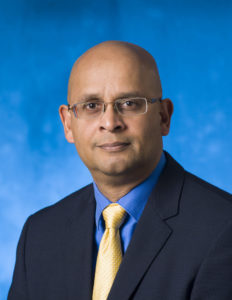
February 10, 2021, BRIDGETOWN, Barbados – Export oriented businesses in Barbados, Dominica, and St Kitts and Nevis will be offered globally standardised testing at domestic laboratories as early as next year says Mr. Daniel Best, Director Projects Department at the Caribbean Development Bank (CDB). The Bank has partnered with the European Union (EU) and the CARICOM Regional Organisation for Standards and Quality (CROSQ) to upgrade labs, train staff, and, in the case of St Kitts and Nevis, develop a national quality policy; to ensure businesses can deliver globally recognised goods and services required for trade.
 Daniel Best
Daniel Best
According to Best, the Strengthening of the Regional Quality Infrastructure Programme in Barbados, Dominica, and St. Kitts and Nevis Project, which is supporting these upgrades “will add value to local and regional enterprises and focuses on several important subsectors in each economy namely, agro-processing, transportation and construction.” This, he indicated is being provided at an opportune time given the economic hurdles being faced by the region.
The intervention is being funded by the CARIFORUM-European Union Economic Partnership Agreement (EPA) and the CARICOM Single Market and Economy (CSME) Standby Facility for Capacity Building financed by the 11th European Development Fund (EDF) and managed by CDB. It is part of the Bank’s wider thrust to stimulate private sector led growth focused on Micro, Small and Medium Enterprise (MSME) development.
Director General of CARIFORUM at the CARICOM Secretariat, Mr. Percival Marie set the context for the project, stating that while there have been improvements in the region’s trade with Europe by businesses leveraging export opportunities, there were gaps in both private and public sectors which required attention. The region in response has committed significant funding to strengthen the relevant institutions. According to Marie, “one of the major components of this CARIFORUM regional capacity building programme is a programme of support to CARIFORUM Member States in seizing market access opportunities through advancing the use of internationally recognised regional quality infrastructure”.

Increasing the capabilities of the regional enterprise is the intent of several interventions supported by the EU in the region. Mr. Luis Maia, Head of Cooperation at the EU Delegation in Barbados stated “as COVID-19 forces unprecedented changes to the way we work, live, and learn; the Standby Facility creates a critical avenue to address inequalities and constraints threatening growth in trade while providing much needed aid to effectively implement CSME and EPA related activities at the national level”.
Mr. Deryck Omar, Chief Executive Officer at CROSQ, which is implementing the US$ 874,932 project, supported this view. “Through projects and resources, such as the European Union’s Standby Facility, we can make steps to bring our businesses and, by extension, our economies ever closer to being more competitive and sustainable.” US$ 587,325 was allocated from the Standby Facility while CDB provided US$11 8,840 from its Special Development Fund (SDF).
 Deryck Omar
Deryck Omar
Exporters from various productive sectors in the region face several barriers when entering new markets, including issues related to quality and adherence to globally accepted standards. This project will assist local firms in accessing resident metrology services increasing export readiness. These arrangements will serve to strengthen manufacturing, reduce production costs and increase the competitiveness of local commodities.
The Standby Facility is a €8.75 million resource managed by CDB, which offers opportunities to 15 Caribbean1 economies to grow trade; deepen integration and economic involvement; and impact competitiveness, market access, and exports by implementing targeted projects in thematic areas.
About the Caribbean Development Bank
The Caribbean Development Bank is a regional financial institution established in 1970 for the purpose of contributing to the harmonious economic growth and development of its Borrowing Member Countries (BMCs). In addition to the 19 BMCs, CDB’s membership includes four regional non-borrowing members – Brazil, Colombia, Mexico and Venezuela and five non-regional, non-borrowing members; i.e., Canada, China, Germany, Italy, and the United Kingdom. CDB’s total assets as at December 31, 2018 stood at USD3.24 billion (bn). These include USD1.75 bn of Ordinary Capital Resources and USD1.49 bn of Special Funds Resources. The Bank is rated Aa1 Stable with Moody’s, AA+ Stable with Standard & Poor’s and AA+ Stable with FitchRatings. Read more at caribank.org.
About the CARICOM Regional Organisation for Standards & Quality (CROSQ)
CROSQ is a regional inter-governmental organization established in February 2002 to facilitate the development of regional standards, promote the harmonization of metrology systems and support the sustainable production and trade of goods and services in the CARICOM Single Market and Economy (CSME). Headquartered in Barbados, CROSQ is the regional centre for promoting efficiency and competitive production in goods and services, through the process of standardization and the verification of quality. In this regard, CROSQ aims to support international competitiveness for the enhancement of social and economic development of the region. All fifteen (15) Member States of CARICOM are members of CROSQ – Antigua and Barbuda, The Bahamas, Barbados, Belize, Dominica, Grenada, Guyana, Haiti, Jamaica, Montserrat, St. Kitts and Nevis, Saint Lucia, St. Vincent and the Grenadines, Suriname, and Trinidad and Tobago.






